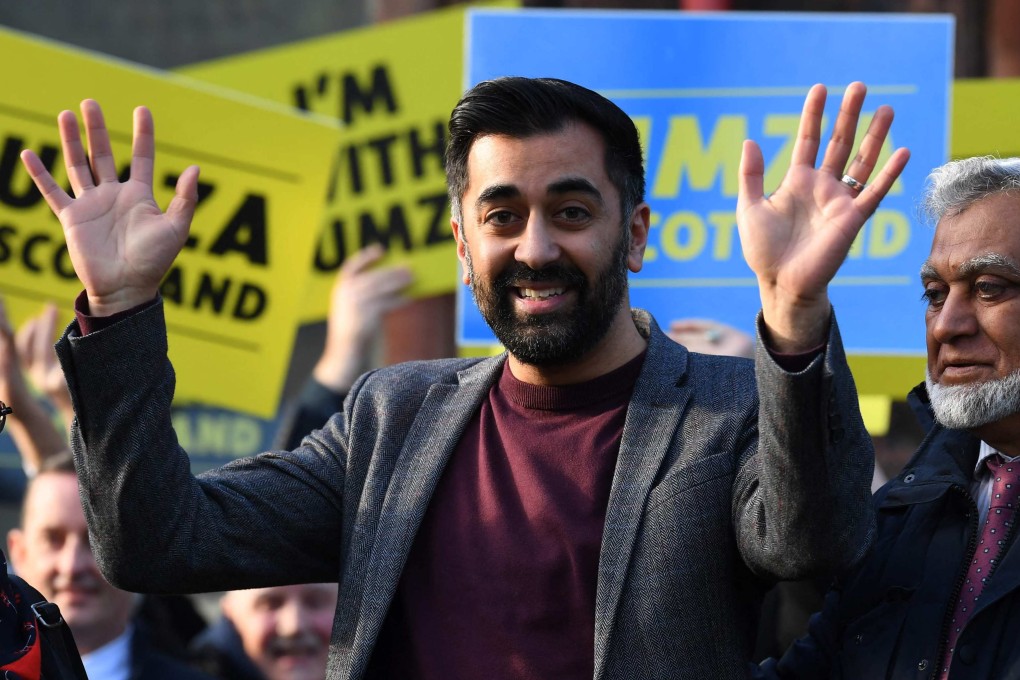The rise of UK South Asians in politics: is Scotland’s Humza Yousaf next?
- Humza Yousaf is considered a favourite to win the Scottish National Party leadership contest as First Minister Nicola Sturgeon exits
- If he wins next week, Yousaf would be the first ethnic minority leader of Scotland and the first Muslim leader of a major UK political party

Nearly five months since the UK Conservative Party installed multimillionaire Rishi Sunak as the country’s first prime minister of colour, the Scottish National Party (SNP), the ruling party north of England’s border, could also make history in its leadership race.
If Yousaf beats Finance Secretary Kate Forbes and former junior minister Ash Regan in the contest, he would become the first ethnic minority leader of Scotland and the first Muslim leader of a major UK political party.
Yousaf is well-known in Scotland, having already held the Scottish development, justice, transport portfolios.
He is currently the Scottish health minister. When elected to the Scottish parliament in 2016, Yousaf in a tartan kilt took his oath in both English and Urdu, the official language of Pakistan.